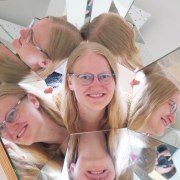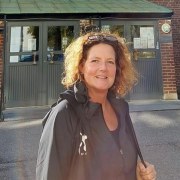Break out of the breakout room
Commitment: 21st century skills
This session will start with a brief introduction of the speakers and their respective institutions, including their online escape game or treasure hunt activities. Then, we will assign participants randomly to breakout rooms of 4-6 people and let them experience our favourite online escape game puzzles. During the game, participants will be guided through our individual institutions by a uniting storyline and a common IT infrastructure. Only if the teams solve all puzzles within 30 minutes, will they be able to break out of their breakout room and return to the main room. At the end of the session, we will discuss our experiences with escape games and rallies (online vs onsite, technical solutions, what works / doesn’t work etc).
Facilitator
Science Gateway Education Lab Coordinator
Session speakers
Rahel will contribute a riddle that takes place virtually in the “Mathematics Adventure Land” in Dresden, Germany. The riddle is taken from a rallye through the exhibition that uses the app Actionbound.
Navet science center in Borås, Sweden will bring a 360 escape room which invites you to walk around in our mathematics and astronomy exhibits while solving puzzles. You will be able to try a smaller part of the entire escape room, which in total involves puzzles in chemistry, mathematics, programming, astronomy and more. We will also share how we use this with classes during online live sessions.
Navet science center in Borås, Sweden will bring a 360 escape room which invites you to walk around in our mathematics and astronomy exhibits while solving puzzles. You will be able to try a smaller part of the entire escape room, which in total involves puzzles in chemistry, mathematics, programming, astronomy and more. We will also share how we use this with classes during online live sessions.
Science Gateway Education Lab Coordinator
Julia will contribute a puzzle of an antimatter-themed escape game that was developed at CERN, Geneva, Switzerland to introduce students to particle physics in a game-based way. She will also share ideas on how to implement game-based activities online, e.g., using the open-source content collaboration framework H5P.




